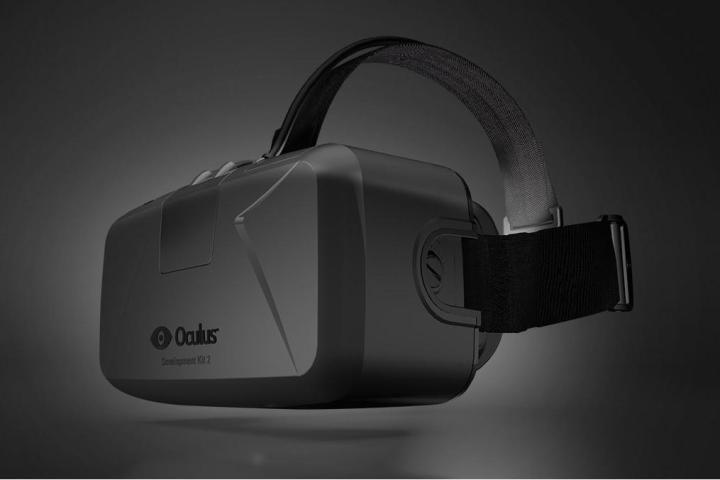
The legal scuffle between virtual reality system developer Oculus VR and ZeniMax, the former employer of Oculus CTO John Carmack, turned a new corner this week with the VR company issuing an official response to the lawsuit ZeniMax filed in late May.
As in previous statements, Oculus vehemently denied the presence of any and all coding or hardware in its Rift VR system that Carmack was responsible for while an employee of ZeniMax. The official response went on to reiterate that it was Oculus founder Palmer Luckey, not Carmack, who created the Rift VR system, and he did so well before Carmack and ZeniMax had any involvement with the system.
“By deliberately misstating some facts and omitting others, ZeniMax makes the incredible assertion that it, a videogame software publishing company for personal computers and consoles like the Sony PlayStation, invented and developed a virtual reality hardware and software system,” reads the introduction to Oculus’ response to the lawsuit. “The truth is quite different.”
The statement goes on reiterate the company’s belief that the lawsuit is a product of Facebook’s recent $2 billion purchase of Oculus VR, and an effort by ZeniMax to cash in on the deal. With ZeniMax having access to the Oculus source code and other elements years before the Facebook deal and having lodged no complaints during that time, Oculus claims that ZeniMax is now attempting to make up for missing the opportunity to invest in the system earlier in its development.
“ZeniMax had never identified any ‘stolen’ code or technology in any Oculus VR product, although ZeniMax had the full source code for the Oculus VR software for over a year and a half (having received it directly from Oculus VR well before it was even released publicly), and could have analyzed it online anytime (at developer.oculusvr.com),” the response continues. “Until the Facebook deal, and the perceived chance for a quick payout, ZeniMax never raised any claim of infringement against Oculus VR, undoubtedly because ZeniMax never has contributed any intellectual property or technology to Oculus VR.”
The response also puts quite a bit of emphasis on Luckey’s work in virtual reality systems that occurred prior to Carmack reaching out to him and the creation of Oculus as a company.
“The Oculus Rift was conceived by a gifted teenage inventor, Palmer Luckey,” it asserts. “Luckey pioneered major advancements in virtual reality technology. He then decided to turn those advancements into something other people could use in the form of the Rift — the world’s leading, head-mounted, virtual reality headset. Luckey created many working virtual reality (VR) head-mounted displays (HMDs), incorporated a number of different motion sensors into those HMDs, shared his work publicly, and displayed those HMDs live on numerous occasions — all before having any interaction or communication with ZeniMax.”
With regard to the connection between the Rift VR system and ZeniMax, the statement indicates that ZeniMax’s own actions with regard to Oculus put a dent in the company’s claims.
“ZeniMax never claimed ownership rights over the Rift based on any supposed contribution to any technology in the Rift, because ZeniMax knew it had made none. To the contrary, prior to this lawsuit, ZeniMax claimed compensation based on the publicity it had generated for the Rift (along with ZeniMax videogames). This made no sense at the time and it makes no sense now,” reasons the statement.
“Suppose ZeniMax had helped create publicity for the Sony PlayStation platform with ZeniMax videogame demos that were made to work on prototype PlayStations. ZeniMax would never say it owned a piece of the Sony PlayStation technology and Sony’s business. Likewise, ZeniMax knows Luckey invented the Rift and the technology powering it. ZeniMax knows that Carmack, the senior technical ZeniMax employee communicating with Luckey, and the only ZeniMax employee working on virtual reality gaming technology, has unequivocally and consistently stated that Luckey invented and developed the Rift.”
The introductory statement closes in no uncertain terms, reiterating Oculus’ belief that the lawsuit is a cash-grab by ZeniMax.
“ZeniMax had a golden opportunity to make an early investment in Oculus VR and chose to pass,” it asserts. “The lawsuit is nothing more than ZeniMax seeking to correct for a massive missed opportunity through the assertion of meritless litigation.”
Clearly, neither side of this lawsuit is pulling any punches. No court date has been set for a hearing, but in its response, Oculus requests a jury trial for any and all matters relating to the case.



